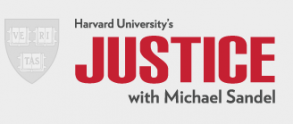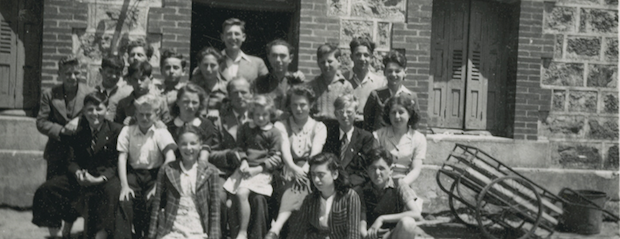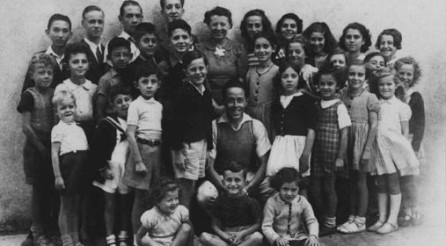When talking about ethics, especially the topics of how to live a virtuous life, how to build a just society and how to create a peaceful world, discussion can very quickly become complicated. Enter “what is the right thing to do” into any search engine and the leading source of information is likely to be the online platform for a fascinating course entitled “Justice,” taught by the Anne T. and Robert M. Bass Professor of Government at Harvard University, Michael Sandel. After a few moments on this site, it will be abundantly clear that the answer to my question, and other, sharper queries in the same vein, is anything but simple.
 “Episode One” conveys immediately that the territory of morality is the territory of dilemmas, defined in the Larousse Dictionary as “the obligation to choose between two elements when each contains its own disadvantages.” From the outset of his class (and book of the same title which I would highly recommend), Sandel proposes a range of challenging choices of the dilemma variety, enough to leave the head spinning. Or take “Episode Eleven”, which explores the influence of culture or in the Harvard professor’s terms “the claims of community” on our understanding of right and wrong: is everything relative or are there principles which all of humanity is called to uphold? Here too, debate is impassioned and seemingly endless.
“Episode One” conveys immediately that the territory of morality is the territory of dilemmas, defined in the Larousse Dictionary as “the obligation to choose between two elements when each contains its own disadvantages.” From the outset of his class (and book of the same title which I would highly recommend), Sandel proposes a range of challenging choices of the dilemma variety, enough to leave the head spinning. Or take “Episode Eleven”, which explores the influence of culture or in the Harvard professor’s terms “the claims of community” on our understanding of right and wrong: is everything relative or are there principles which all of humanity is called to uphold? Here too, debate is impassioned and seemingly endless.
Pondering and discussing such questions are essential aspects of becoming a good person and an intelligent citizen, of course, and our own students at the Lycée Français de New York engage in precisely this form of critical thinking through the remarkably enriching philosophy course they complete in twelfth grade. Yet the realm of morality is more than epistemology alone, it must also be said, as someone in attendance at the memorable “21st Century Citizenship Roundtable Discussion” we organized this past Tuesday evening in our Cultural Center so eloquently did. Ethics, this visitor explained, is about compassion and courage brought to life through action: compassion enough to care for people other than oneself; and courage enough to stand up for what one knows to be right, regardless of the perils which such standing up entails.
Virtuous life, just society, peaceful world
From left to right: Denise Vallat, Pascale Richard, Peter Nelson and Mia Nagawiecki during the discussion on “Making History Our Story,” held at the Lycée Français de New York on November 17. (Credit: E. Derville)
Bringing together Mia Nagawiecki (Director of Education at the New York Historical Society), Peter Nelson (Director of the New York Office of the non-profit educational organization “Facing History and Ourselves”) and Denise Vallat (Deputy Mayor for Cultural Affairs for the French village of Le Chambon-sur-Lignon), with outstanding moderation by Dr. Arthur Plaza (Chair of our Humanities Department at the LFNY), our panel focused on the extraordinary ways in which history can shed light on the moral compass everyone needs, cultivate our empathy for people different from ourselves and fortify our resolve in defending the rights which belong equally and inalienably to each and every member of the “human family.”
A group of children hidden in Chambon-sur-Lignon, a village in southern France, August 1942. (Credit: United States Holocaust Memorial Museum / USHMM)
The particularly uplifting case about which we learned on Tuesday was that of Mrs. Vallat’s small community in the Auvergne region of France, “Le Chambon,” where during the Second World War some 3,000 Jewish and other refugees found safety from Nazi persecution as well as protection from almost certain death. Risking their own lives, but never thinking twice about the potential costs involved and even today insistent that their actions deserve no special recognition, the inhabitants of this village opened their homes to the complete strangers who came knocking on their doors, impressed only by the suffering they saw before them and moved instantly to give away whatever they owned out of a sense of shared humanity.
In the Q and A session which followed our roundtable, a person in the audience recounted a story she had once heard a Le Chambon resident recount. Asked why she had done what she had done, the latter had replied something along the lines of “it didn’t take thought; it was just the right thing to do.” A virtuous life, a just society, a peaceful world: the mind will help us get there, but the heart more surely still.
Homepage photo credit: USHMM
About the Author :
Sean Lynch was Head of School at the Lycée Français de New York from 2011 to 2018, after having spent 15 years at another French bilingual school outside of Paris: the Lycée International de St. Germain-en-Laye. Holding both French and American nationalities, educated in France (Sciences Po Paris) and the United States (Yale), and as the proud husband of a French-American spouse and father of two French-American daughters, Sean Lynch has spent his entire professional and personal life at the junction between the languages, cultures and educational systems of France and the United States. In addition to being passionate about education, he loves everything related to the mountains, particularly the Parc National du Mercantour.



